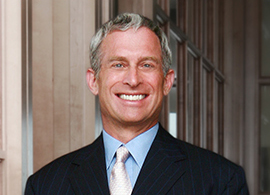As with most relationships, the one between a venture capitalist and a CEO is, well, complicated.
While the similarities between business and personal partnerships have not gone unnoticed—namely the need for communication, respect, trust, and shared vision—it’s also worthwhile to point out the differences.
The story of CEO Steve Blank’s fledgling (and failing) video-game venture underscores what might be the most important one. He had developed what he thought was an amiable relationship with his two key investors, and was optimistic about their invitation to sit down to lunch in San Francisco, where he is based.
He was not, however, prepared for the news they delivered—that they were backing out of their arrangement. He was so taken aback that he literally blurted out, “I thought we were friends!”
But given the chance to reflect, he reached this conclusion: CEOs and VCs are in fact not friends, but frenemies. While it is possible (and even desirable) for a company head to be on good terms with venture capitalists, it is essential to understand that they are not entering into this relationship out of the goodness of their hearts. They have their own investors to satisfy, and any failure in the chain of command can result in cold feet.
Where a CEO might only see one or two venture capitalists, a VC sees several CEOs in his or her portfolio. The interests of each side are very different, and the sooner new CEOs can understand that, the better their perspective will be.
It does not follow, however, that there must be a self-imposed distance between the two parties. Indeed, a VC would do well to develop a full understanding of the business in which he is investing: an understanding of what it is trying to accomplish, where it falls in its growth cycle and what direction it is headed in.
Blank believes that venture capitalists would do well to serve as CEO of their own startups before following the VC track. The hands-on knowledge of the intricacies of fundraising, marketing, and technology he says would be invaluable.
Venture advisor and entrepreneur William Mougayar agrees, also stressing the importance of people skills. The best venture capitalists, he believes, are also the most approachable. Personality matters. Support matters. With an ounce of caution, of course.
This is part of a successful entrepreneur’s broad assessment of a VC, which includes who they are, what they think, how they behave, what they want and what you don’t see. But even in making this assessment, a dose of humility is essential, and it’s important to remember that the right VC can offer a CEO much more than just an investment. Bill Gates, CEO of Microsoft, knew this when he sought out a VC in 1981—not because he needed investors, but because he was seeking strategic advice from an experienced businessman.
Dave Marquardt would sign on and join Microsoft’s board of directors, where he remained for over 30 years. He was the only venture capitalist to ever invest in the company.
All told, it’s a complicated relationship, and there is much to be learned on both sides. Friendliness and professionalism go hand in hand, yet even the most successful partnerships are often between frenemies. Frenemies who can sometimes, against all odds, manage to do what Steve Blank did with his investors…and remain, friends, even when the deal falls through.





